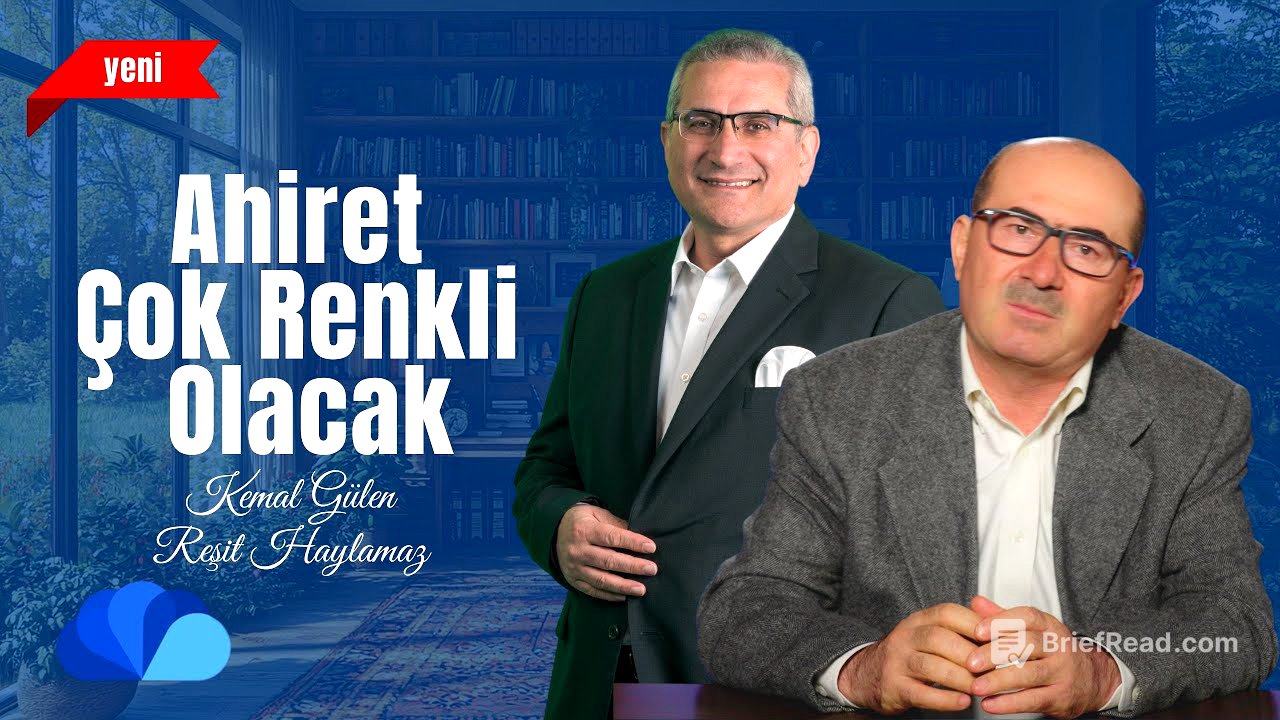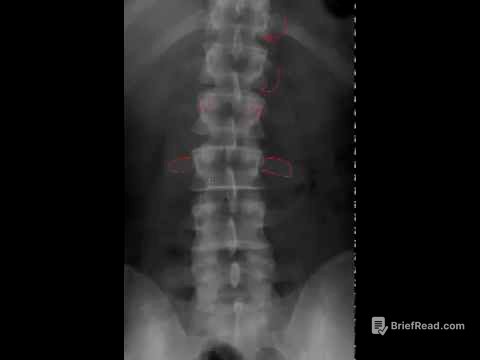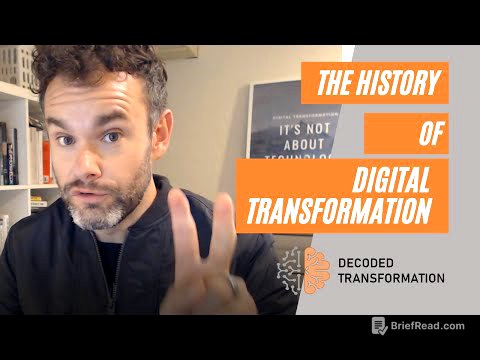TLDR;
In this episode of Friendship Assembly, Resit Haylamaz discusses the balance between worldly pursuits and spiritual duties, drawing parallels between farming and societal roles. He shares his experiences farming in America, reflecting on the lessons learned from nature and the wisdom found in the Quran and the lives of prophets. The conversation touches on social media's impact, the importance of consultation, and the need to maintain hope and integrity in service to others.
- Balancing worldly and spiritual duties is essential.
- Social media can be a tool for good or a source of harm.
- Consultation and unity are vital for progress.
- Maintaining hope and integrity is crucial in serving others.
Introduction [0:05]
The host introduces Resit Haylamaz, highlighting his expertise in understanding happiness and his practical experience as a farmer. The host emphasizes the value of learning from individuals who connect their professions with broader social issues, drawing parallels to the professions of prophets and their ability to gain profound life experiences through their work. The conversation aims to explore the relationship between farming, people, and society, seeking to understand the insights Resit Haylamaz has gained from his experiences.
Farming in America [1:38]
Resit Haylamaz discusses his farming experiences in America, acknowledging both the challenges and blessings. Despite difficulties like drought, he emphasizes gratitude and the opportunity to be self-sufficient. He connects his work to the tradition of prophets engaging in professions, highlighting the importance of balancing worldly endeavors with spiritual duties. He shares an anecdote about a friend who humorously questioned his multifaceted roles as a teacher, farmer, and builder, illustrating the need to adapt and overcome various challenges.
Analogies in Farming and Life [4:17]
Resit Haylamaz reflects on how his farming experiences provide insights into life and faith. He mentions a visit where he shared stories from the Age of Happiness while eating watermelon, illustrating how work and spirituality can intertwine. He discusses how observing nature and engaging in farming opens his mind to analogies and deeper understanding, similar to how the Quran uses plants and trees to describe believers. He emphasizes the need to manage multiple responsibilities and adapt to various roles, drawing parallels to Bediuzzaman Said Nursi's teachings on reading life well.
The Value of Time [7:20]
Resit Haylamaz emphasizes the importance of time, referencing the example of 24 gold coins to illustrate its preciousness. He shares personal experiences of balancing various responsibilities and the need to use time wisely. He warns against being consumed by fleeting opportunities and neglecting essential duties. He stresses the importance of leaving a positive trace in the world and making the most of the limited time available.
Social Media Perception [9:06]
The host inquires about Resit Haylamaz's controlled use of social media, contrasting it with the widespread consumption of social media among people of all ages. Resit Haylamaz explains that he limits his activity due to the overwhelming negativity and misinformation prevalent on these platforms. He describes social media as a "fake world" where lies are amplified and used to manipulate and destroy. He references Quranic verses warning about those who wear masks and deceive, emphasizing the need to be cautious and discerning.
Dangers of Social Media [13:15]
Resit Haylamaz continues his critique of social media, comparing it to a "neighborhood coffeehouse" filled with unproductive chatter. He highlights how the devil uses acquired rights to mislead and manipulate, presenting evil deeds as beautiful. He warns against building judgments on fragmented information and the dangers of psychological warfare on these platforms. He stresses the importance of self-reflection and avoiding the trap of constantly judging others.
Problem Solving and Social Media [18:57]
Resit Haylamaz questions whether social media is a viable solution to problems, using the analogy of a tree infested with bugs. He argues that problems should be addressed directly and discreetly, rather than broadcasting them to the world. He criticizes the tendency to make hasty judgments based on incomplete information and the importance of loyal individuals addressing issues privately. He contrasts this with the current trend of publicizing personal grievances and engaging in gossip.
Consultation and Discussion Ethics [22:18]
Resit Haylamaz emphasizes the importance of consultation and maintaining consistency with its logic. He highlights the need to preserve the richness of diverse opinions while adhering to fundamental principles. He stresses that problems should be discussed with the concerned individuals promptly and respectfully. He references the Battle of Uhud as an example of the ethics of discussion and consultation, emphasizing the importance of leadership and determination.
Lessons from Badr and Uhud [23:17]
Resit Haylamaz reflects on the significance of the battles of Badr and Uhud, noting that Badr, while a victory, also represented a resetting of savings and a need to rebuild from scratch. He emphasizes that setbacks are opportunities to redefine strategies and re-enter people's hearts. He describes the tensions leading up to Uhud and the importance of evaluating events from multiple perspectives. He highlights the need to avoid defining everything as war and to understand the broader context of historical events.
The Battle of Uhud and Leadership [25:34]
Resit Haylamaz discusses the events leading up to the Battle of Uhud, emphasizing the consultation process and the enthusiasm of the youth. He highlights the leader's role in making determined decisions, even when facing conflicting advice. He notes that true leadership emerges during challenging times, requiring steadfastness and clarity. He references the Prophet's dream and its interpretation, illustrating the importance of understanding the broader picture.
Forgiveness and Consultation [28:40]
Resit Haylamaz discusses the aftermath of Uhud, emphasizing the importance of learning from mistakes and avoiding actions that disrupt internal harmony. He references verses from the Quran that encourage forgiveness, consultation, and unity. He highlights the Prophet's approach of forgiving those who made mistakes and involving them in future endeavors. He contrasts this with the tendency to dwell on past errors and assign blame.
The Story of Kaab bin Malik [34:01]
Resit Haylamaz shares the story of Kaab bin Malik, who was sanctioned for being late in leaving for an expedition. He emphasizes Kaab's sincerity and the community's support during his period of isolation. He contrasts Kaab's situation with those who make excuses and seek to avoid responsibility. He highlights the importance of maintaining a clear stance and not compromising one's values.
Divine Opportunities and Perspectives [37:10]
Resit Haylamaz reflects on how divine opportunities often arise from difficult circumstances. He shares personal experiences of unexpected blessings and the importance of recognizing God's will. He emphasizes that pain and trauma can open doors to new perspectives and opportunities. He uses the analogy of planting a tomato seed to illustrate how sociology and life have inherent rules and rhythms.
Migration and Service [39:31]
Resit Haylamaz discusses the migrations of the companions and the Ahl al-Bayt, highlighting the reasons why people in the Far East became Muslim. He emphasizes the importance of natural settlement and carrying service to geographies that appreciate it more. He contrasts the material wealth of some societies with the richness of heart and the influence of the companions and the Ahl al-Bayt. He notes that Islam has become a stranger in its own homeland and that the accumulation of right service is being carried among people who appreciate it more.
The Importance of Focus and Procedure [42:09]
Resit Haylamaz stresses the importance of focusing on the procedure and avoiding emotionality. He uses the analogy of a captain on a plane to illustrate the need for experience and expertise. He warns against trying to control everything and the dangers of reconstructing the whole without fully understanding the situation. He emphasizes the need to question the timing and motives behind actions and to avoid being swayed by emotions.
Justice and Fairness [43:57]
Resit Haylamaz emphasizes the importance of justice and fairness, referencing Quranic verses that warn against letting anger and hostility prevent one from being just. He cautions against settling scores and making oneself smaller by holding onto past grievances. He uses the analogy of solar flares to illustrate the importance of focusing on the center and maintaining one's source of power. He encourages open communication and avoiding the burning of bridges.
Integrity and Accountability [47:38]
Resit Haylamaz shares a personal anecdote about those who constantly do evil to the service, emphasizing the importance of integrity and accountability. He references the story of Hazrat Abu Bakr's selection as caliph and Hazrat Ayşe's stance, highlighting the need for strong representation and consistency. He emphasizes the importance of solving problems and avoiding misinformation.
External Interests in Islam [51:20]
Resit Haylamaz discusses how external forces have always been interested in Islam, both with good and bad intentions. He notes that in the early days, Mecca and Medina were not seen as valuable, but this changed with the advent of Islam. He highlights how major powers began to pay attention and offer advice, even scrutinizing details like dietary practices. He emphasizes that migration and life with people of all faiths are essential experiences.
Migration and Contracts [54:30]
Resit Haylamaz discusses the migration to Medina and the contracts made with Jews and Arabs, emphasizing the importance of these agreements in solving problems. He notes that these contracts serve as a model for today's world. He highlights how external powers saw the potential of this growing structure and sought to influence it. He references the story of Musaylemetul Kezzap and the Sassanids' interest in him.
Honesty and Integrity [56:03]
Resit Haylamaz emphasizes the importance of honesty and integrity in service. He shares an anecdote about a message he received after his release in 2008, highlighting the constant scrutiny and challenges faced. He stresses that in the name of charity, one must ensure that the road taken is not serving evil.
Divine Revelation and Consultation [57:46]
Resit Haylamaz discusses how the Prophet Muhammad, despite receiving divine revelation, still consulted with others. He emphasizes the importance of acting with an awareness of the afterlife and avoiding judgments without considering all perspectives. He references a hadith about expressing intentions clearly and making judgments based on those statements.
The Story of the Stolen Armor [1:00:06]
Resit Haylamaz shares the story of a man who stole armor and framed a Jew for the crime. He emphasizes the importance of not speaking without being sure and doing so in the right place, with the right addressee, and at the right time. He warns against becoming a tool for those who seek to manipulate and disturb public harmony.
Confrontation and Accounting [1:02:30]
Resit Haylamaz discusses the concept of confrontation, referencing writings by Hodja Effendi. He emphasizes that the best way to confront someone is through silence when necessary. He highlights the importance of self-accounting and ensuring that one's actions align with the principles of service. He warns against the clash of egos and the need to solve problems collectively.
The Kaaba of Ibn Malik and Teamwork [1:06:19]
Resit Haylamaz references the example of the Kaaba of Ibn Malik, emphasizing the need to look around and assess who is benefiting from one's actions. He highlights the importance of teamwork and focusing on the service rather than personal gain. He shares his experience of forming a team and conducting interviews, emphasizing the dedication and commitment of those involved in service.
The Importance of Stability and Duty [1:09:24]
Resit Haylamaz emphasizes the importance of stability and taking on a duty in service. He notes that many people who remain stable are those who avoid social media and focus on their own work. He highlights the need to show the table to others, emphasizing the efforts of those who are working diligently.
The Analogy of the Rosary [1:10:25]
Resit Haylamaz uses the analogy of a rosary to illustrate the importance of the rope that holds the beads together, representing the values that unite people in service. He emphasizes the need to focus on these values and to account for how much one has absorbed them. He references Hazrat Ali's caliphate and the need for a strong will to handle difficult tasks.
The Burden of Service [1:15:54]
Resit Haylamaz emphasizes the difficulty of carrying the burden of service, comparing it to holding fire in one's hand. He stresses the importance of supporting those who carry this burden and offering guidance for improvement. He cautions against criticizing and undermining those who are already struggling.
Migration and the Will of God [1:18:17]
Resit Haylamaz discusses migration and the importance of seeing the will of God in it. He references the Prophet Muhammad's migrations and the need to avoid giving the appearance of turning back. He highlights the story of Saad ibn Abi Waqqas and the importance of fulfilling one's destiny.
The Cemetery of the Migrants [1:24:19]
Resit Haylamaz discusses the cemetery of the migrants, emphasizing the importance of seeing the will of God in the necessity of leaving one's homeland. He notes that God has a will to deliver his case to everyone in the world and employs people to do so. He highlights how negativity can be a blessing and that even in difficult circumstances, God provides opportunities.
The Muslim Image [1:26:41]
Resit Haylamaz emphasizes that any of our friends, male or female, create another Muslim image. Because the face of Islam has been darkened. As of our world, theft, shamelessness, dishonesty, everything is there. We seemed to be on the same level as these until yesterday. The oppression you are experiencing now, then, you show this trust with your stance. You gave.
The Sun and the Houses [1:27:25]
Resit Haylamaz references statements about the sun and the houses, emphasizing the importance of carrying the message to people. He notes that words have lost their meaning and that the language of the heart is the most effective. He highlights the importance of focusing on the wealth in our hearts.
The Umayyad Period and the Ahl al-Bayt [1:29:09]
Resit Haylamaz discusses the Umayyad period and the role of the Ahl al-Bayt in guiding believers. He notes that their work spread from the Arabian Peninsula to Asia, spreading the name of God. He emphasizes that even though they faced difficulties, their efforts led to the rise of the Seljuks and the Ottomans.
Islam Arising from the West [1:30:41]
Resit Haylamaz discusses the idea that Islam will arise from the West, noting that many people have gone to different places to continue their service. He highlights the importance of the Bible community and the potential for growth in those geographies. He emphasizes the need to eliminate complacency and inertia.
The Importance of Speed and the Call of Aymaz [1:36:00]
Resit Haylamaz emphasizes the importance of speed and eliminating complacency. He references Necip Fazıl's statement and the call of Aymaz to get on with business. He highlights the need to avoid leaving people waiting empty-handed.
The Layout of Çağlayan [1:36:09]
Resit Haylamaz discusses his involvement with the magazine Çağlayan, emphasizing Hodja Effendi's methodology and his attention to detail. He notes that Hodja Effendi was preparing a new magazine and that he was called to help with the layout. He highlights Hodja Effendi's commitment to the magazine, even during the COVID outbreak.
Hodja Effendi's Will [1:40:53]
Resit Haylamaz emphasizes that Hodja Effendi had his will in his hands until his last moment and was a human with good judgment. He notes that Hodja Effendi was testing and that it is important to voice one's own problems. He warns against taking revenge on the teacher and the need to sit down and talk correctly.
The Delegation and the Service [1:44:27]
Resit Haylamaz discusses the delegation and the service, emphasizing the importance of continuity and avoiding being preoccupied with matters. He notes that the service has its sides and that it is important to solve every problem faced. He warns against targeting individuals and the need to make decisions by looking from where God looks.
The Importance of Timing [1:48:20]
Resit Haylamaz emphasizes the importance of timing and intervening early to solve problems. He notes that it is important to see the problem and to give the person time to clarify it. He warns against substitution of the delegation and the need to avoid insisting on one's own opinion.
The Sun Burst Again [1:52:11]
Resit Haylamaz emphasizes that the sun will burst again and that those who do evil will stay and it will be a shame. He notes that there is a potential to deliver great services and that people with disabilities will retire early. He highlights the importance of nutrition and moving with groups of friends.
The Wisdom of Internal Debates [1:53:24]
Resit Haylamaz discusses the wisdom of internal debates, emphasizing that they are based on wisdom and that God is dominant. He notes that the differences between people are like increasing immunity to disease. He highlights the importance of looking at oneself in a mirror and putting things through a filter.
Hope and the Promise of God [1:56:09]
Resit Haylamaz emphasizes the importance of hope and the promise of God. He notes that despair is an adjective of the infidel and that we are believers. He highlights the importance of trusting in God's promise and looking at the age of bliss for the Prophet Muhammad.
The Importance of Patience [1:57:55]
Resit Haylamaz emphasizes the importance of patience and enduring the period of pregnancy. He notes that events need time to take shape and create conditions. He highlights the importance of paying the price and creating a perception in the world.
The End of the Film [2:00:38]
Resit Haylamaz emphasizes that the film will end and that it will turn into memories. He notes that the children of those patient people will be yours. He highlights the importance of nutrition and moving with groups of friends.
The Art of Managing People [2:05:26]
Resit Haylamaz discusses the art of managing people, noting that Hodja Effendi was at the top in terms of this. He highlights the importance of not allowing people to break away and making concessions to prevent them from leaving.
The Prophet in Life [2:06:17]
Resit Haylamaz emphasizes that everything written in the first 5 centuries is being scanned to bring a prophet to light. He notes that the political struggle of Islam has been read over a prophet. He highlights the importance of seeing the prophet in life and solving the world's problems.
The Century of Happiness [2:07:40]
Resit Haylamaz emphasizes that Hodja Effendi has filtered the criteria of happiness and has seen the prophet with all his photographs. He notes that Hodja Effendi has completed the puzzle and brought it to life. He highlights that the teacher whose century of service came from happiness is the master.
The Glue of the Service [2:10:12]
Resit Haylamaz emphasizes that the glue of the service is to touch people's hearts. He notes that everyone thinks that the most was loving himself. He highlights that the teacher had a different relationship with everyone and was interested in all the problems of people.
The End of the Conversation [2:12:55]
The host thanks Resit Haylamaz and notes that they will return him to our field again. He highlights that Resit Haylamaz is making an effort to preserve unity and peace. He ends the conversation by reading a paragraph from Resit Haylamaz's article, emphasizing that the afterlife will be very colorful.









